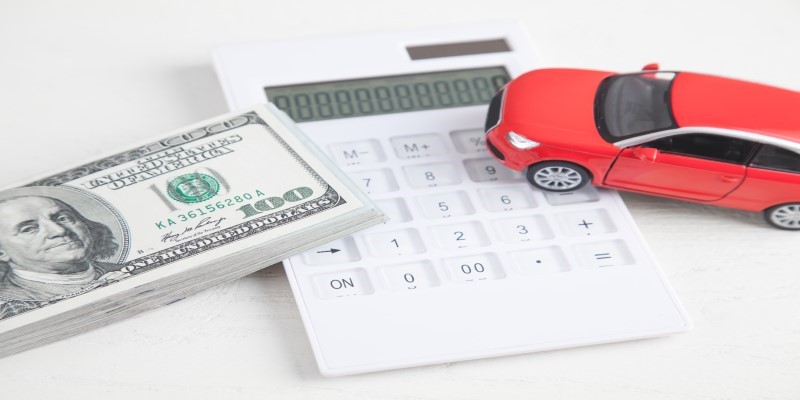Understanding Tax Deductions on Personal Loan Interest
When it comes to personal loans, understanding how tax deductions work on the interest you pay can help you save money. Although personal loans are primarily used for expenses like home renovations, medical bills, or education, knowing if you qualify for tax benefits is essential. Not all personal loan interest is tax-deductible, but certain scenarios like using the loan for business or property-related purposes might make you eligible. This guide will simplify the key points for you.
What is the Personal Loan Interest Tax Deduction?

Taxpayers can reduce their taxable income by claiming the costs associated with personal loan interest through the deduction process. You can deduct personal loan interest when claiming your taxes for the year due to interest payments you made on such loans. Only particular cases qualify for this deduction yet the benefit depends on why you used the loan funds.
Criteria for Tax Deductibility of Personal Loan Interest
To understand if you are eligible for a tax deduction on your personal loan interest, here are some general criteria to consider:
- Purpose of the Loan: The purpose of your loan plays a crucial role in determining if the interest is tax-deductible. In most cases, loans taken for business or investment purposes may qualify for tax benefits.
- Documentation: To claim a tax deduction on personal loan interest, you will need to provide proper documentation proving that the funds were used for deductible purposes. This includes records such as invoices, receipts, and bank statements.
- Ownership of Property: If you use the personal loan to purchase an asset like a rental property or shares in a company, the interest may be tax-deductible. However, if you use the loan for personal expenses like a vacation or wedding, it will not be eligible for a tax deduction.
- Employment Status: If you are self-employed and have used the personal loan for business purposes, you may claim a tax deduction on the interest paid. However, if you are an employee, your employer must reimburse any work-related expenses rather than claiming them as deductions on your personal taxes.
How to Claim Deductions
If you meet the criteria mentioned above, here's how you can claim deductions on your personal loan interest:
Itemize Your Deductions
To claim a tax deduction for personal loan interest, you must itemize your deductions on your income tax return. This means that instead of taking the standard deduction, which is a fixed amount based on your filing status, you will need to list out each deductible expense separately.
Include the Interest Paid in Your Schedule A
Schedule A is where you report itemized deductions such as mortgage interest, property taxes, and charitable contributions. If you qualify for a tax deduction on personal loan interest, this is where you should include it.
Use Form 1098
Lenders are required to send borrowers Form 1098 if they have paid more than $600 in interest during the tax year. This form will have all the necessary information you need to report on your tax return, including the amount of interest paid and the loan's purpose.
Important Considerations
- Bear in mind that tax laws are subject to change, so it's vital to stay updated and seek professional advice if necessary.
- If you default on your loan or fail to make payments, the interest will no longer be tax-deductible.
- Personal loans must be taken from a qualified lender to qualify for tax deductions. Borrowing from friends or family members may not be eligible.
- Interest paid on personal loans used for medical expenses may also be eligible for deduction under certain circumstances.
Common Misconceptions
There are a few misconceptions surrounding tax deductions on personal loan interest. Here are a couple of them:
Personal Loans are Always Tax-Deductible
As mentioned earlier, personal loan interest is only tax-deductible in specific situations. Taking out a personal loan for non-business or investment purposes will not make you eligible for a tax deduction.
All Interest Paid on the Loan is Deductible
Only the amount of interest paid in a given year may be eligible for a tax deduction. The principal amount borrowed and any additional fees or charges are not deductible.
Tips to Optimize Financial Planning with Tax Laws

Understanding tax deductions on personal loan interest can be beneficial for your overall financial planning. Here are a few tips to help you optimize your taxes and make the most of available deductions:
Consult a Tax Professional
A tax professional can guide you on how to best structure your personal loans and provide advice on claiming deductions. They can also help you with other aspects of financial planning, such as retirement and investment strategies.
Keep Detailed Records
To ensure that you have the necessary documentation to support your claims for tax deductions, it's crucial to keep detailed records of all expenses related to your loan. This includes copies of contracts, receipts, and bank statements.
Stay Updated on Tax Laws
Tax laws are subject to change. To make sure that you are taking full advantage of available deductions, stay updated on any modifications or new laws that may affect your personal loan interest deduction eligibility.
Conclusion
Tax deductions on personal loan interest can help reduce your overall tax burden, but it's essential to understand the criteria and follow the necessary steps to claim them correctly. Consult a tax professional for personalized advice and keep detailed records of your loan-related expenses to optimize your financial planning with available tax laws. By staying informed and following best practices, you can maximize your potential for tax deductions and save money in the long run.











